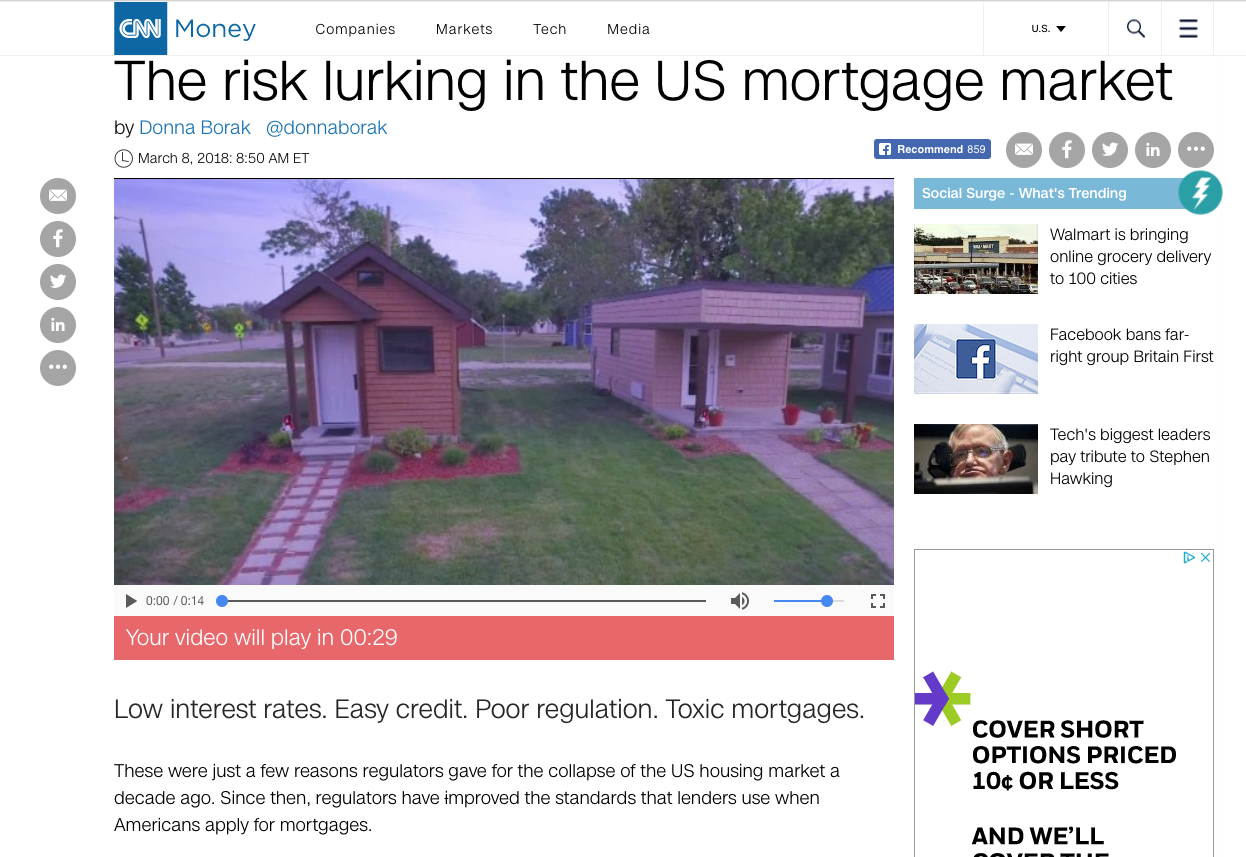There are a lot of things that many every-day consumers don’t fully understand about mortgages – bits of knowledge that we take for granted as professionals who work in the business. It’s just human nature for people to focus mostly on the house, itself, without thinking as much about the actual mortgage aspect of it.
A lot of times, those same consumers rely on what reporters say on the news or write online as they form their own opinions and make decisions on things like what kind of lender to use, how much of a down payment to put down, what kind of loan product to get, and so on.
That can become an issue, though, when reporters push out incorrect info, because it misinforms and misleads people, regardless of it is intentional or not. When that happens on mortgage topics, especially when reporters are distinguishing between banks and nonbanks (which include mortgage brokers as well as mega online retail lenders), I take exception to it.
That’s exactly what happened in a recent CNN Money article, in which Donna Borak reported that a growing number of mortgages being financed by nonbank lenders means that danger is again lurking in the housing industry.
For this CNN reporter, or anyone in the media, to suggest that there is a “big lurking risk” in regards to nonbanks is, at worst, just an eye-grabbing clickbait tactic, and at best, an unfortunate indicator that reporters need to be educated on mortgage truths just as much as “regular consumers."
Borak led the article with a sub-headline that read, “Low interest rates. Easy credit. Poor regulation. Toxic mortgages,” referring to nonbank lending.
She also said that nonbank lenders are “subject to far less regulation and have fewer safeguards when borrower defaults start to pile up”.

To even suggest that the housing market is in a comparable state today as what happened in 2006, 2007 and 2008 is irresponsible. There’s a huge world of difference. Present-day regulatory standards, licensing standards, barriers to entry, and protections that are in place for consumers are 10 times as strong as they were 12 years ago.
It’s an antiquated take to say that nonbanks are riskier options for mortgages than banks. It’s actually easy to argue the opposite – that non-banks are not a risk, because they are specialists. They focus on mortgages, all day and every day. They build technology to make the mortgage process easier for consumers. Nonbanks have to comply with state regulatory requirements in all 50 states, in addition to following CFPB rules and Dodd-Frank laws.
For all those big banks that do 48 different things, mortgages are just one small segment of their overall product portfolios. Banks only have to follow federal laws (not state-level regulations), and bank loan originators aren’t even required to be licensed. But why don’t reporters talk about that? Looser licensing and regulatory standards, from an organization standpoint, seem riskier to me.
Nonbanks – and all loan officers that work at nonbanks – have to be licensed in every state they originate loans in. They’re experts in their field. I could argue that mortgage brokers, specifically, are the best option – both from the perspective of consumers getting loans, as well as loan officers doing more business – because they have access to pricing, products and regulations at banks and non-banks to find the best deal for consumers.
Are nonbanks perfect? No. Are banks perfect? No. Nothing is perfect. But to compare today’s housing and mortgage industry to what it was in the height of the housing crisis, and to report that non-banks have lower standards than banks, is highly irresponsible and flat-out wrong.
In large part, nonbank lenders aren’t just a less risky option for consumers, they’re ultimately the best option, specifically mortgage brokers, which offer the best prices and products, as well as an easy mortgage process. They’re specialized and fully licensed experts who find the most affordable mortgage products for each consumer’s specific financial situation.






